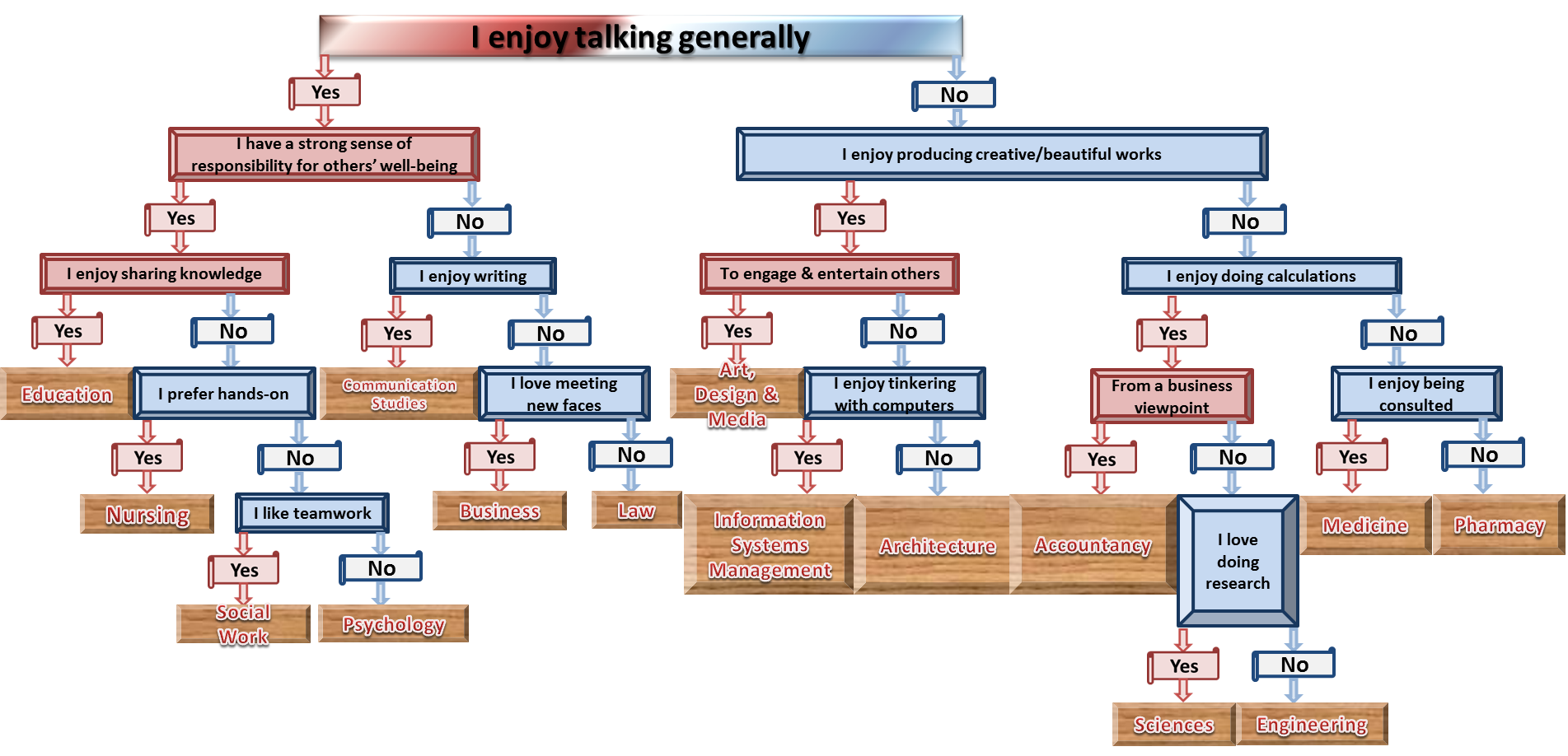Most bachelor’s degrees take a substantial period of between 3 and 4 years to complete while the steep cost of higher education is enough to wipe out 1 to 2 years’ worth of income (if you decide to take a local degree). Therefore, pursuing a bachelor’s degree is in reality both a time-consuming and financially taxing affair.
To make things worse, some students may realise that they have lost the passion midway through college or could not sustain their enthusiasm for long after graduation. Consequently, they do not find the jobs that are relevant to the skills and knowledge they have painstakingly acquired in the university. This results in a significant wastage of useful resources at the societal level.
From a rational point of view, it is thus in the best interests of both the society and the individual to assess the compatibility between oneself and the particular programme. Specifically, undergraduates can maximise their economic gains from such a hefty investment by patently understanding their likes and dislikes before committing to a particular course of study.
Click to enlarge:
Disclaimer: This is merely used as a quick reference guide.




